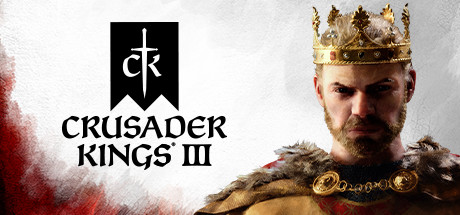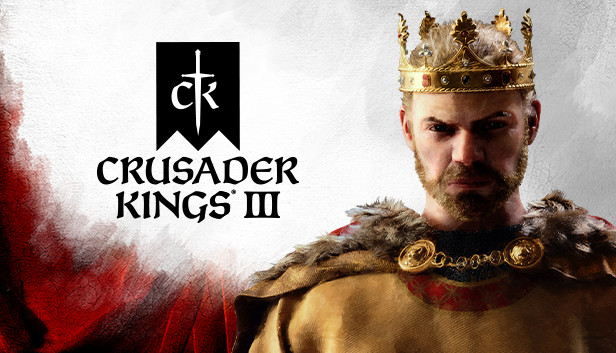Crusader Kings III: A Deep Dive into Paradox’s Medieval Masterpiece
The Reign Begins: An Introduction to Crusader Kings III
Crusader Kings III, released in September 2020 by Paradox Interactive, is the latest installment in the critically acclaimed grand strategy series. Unlike traditional strategy games that focus on nations or empires, Crusader Kings III places you in the boots (or fur-lined robes) of a medieval dynasty, challenging you to navigate a web of politics, warfare, and intrigue. Whether you're a returning fan of the franchise or a newcomer to grand strategy, CK3 offers a rich, immersive experience that combines deep role-playing mechanics with complex strategic gameplay.
At its core, CK3 is a dynastic simulator where players guide their chosen family through the turbulent medieval era. Your success isn’t measured just by conquest—though warfare plays a significant role—but by securing power through marriages, assassinations, diplomacy, and careful dynasty management. The game spans from the years 867 to 1453, covering the rise and fall of kingdoms from the Viking Age to the dawn of the Renaissance.
Character-Driven Gameplay: More Than Just a Map Painter
What sets Crusader Kings III apart from other strategy games is its emphasis on characters. Every ruler, vassal, courtier, and even enemy is a fully realized individual with their own traits, ambitions, and secrets. These personalities shape the world in meaningful ways—scheming spymasters may plot your downfall, while chivalrous knights might prove invaluable in battle.
Traits, such as "Lustful," "Brave," or "Deceitful," influence decision-making and NPC interactions. A "Gregarious" ruler will find it easier to sway opinions, while an "Arbitrary" leader may struggle to maintain a stable realm. Additionally, the stress system ensures that players must manage their ruler’s mental well-being, as reckless decisions can lead to breakdowns, health issues, or even premature demise.
Dynasty and Legacy: Building a Name for the Ages
One of the most compelling aspects of CK3 is dynastic gameplay. Players don’t just control a single character—they guide an entire bloodline through generations. Marriages, inheritances, and educating heirs are crucial elements of long-term success. A poorly managed succession can fracture an empire, while a well-planned dynasty may stand the test of time.
The game introduces "Cadet Branches," where ambitious younger sons can establish their own noble houses, and the "Renown" system, which tracks dynasty prestige. Amassing renown unlocks powerful dynasty legacies, granting permanent bonuses such as improved fertility, martial prowess, or enhanced diplomatic skills.
Warfare and Expansion: The Steel Behind the Schemes
While intrigue and diplomacy are essential, Crusader Kings III doesn’t neglect military conquest. Warfare in CK3 is more nuanced than in previous entries, with a deeper levy system, knights, and men-at-arms playing crucial roles. Armies are no longer abstract numbers but are composed of specific units, each with different strengths and weaknesses.
Raiding, an option for certain cultures (especially Vikings), allows for quick gains at the expense of neighbors without the burden of full-scale war. Meanwhile, siege mechanics require planning, as well-fortified castles can hold out for extended periods.
Religion and Culture: Shaping Your Realm’s Identity
Religion and culture are two pillars that define CK3’s medieval world. Players can lead their rulers through schisms, heresies, or even found new faiths. Different religions offer unique mechanics—for example, Catholicism forces players to contend with papal authority, while Norse pagans can embrace Viking invasions and Great Holy Wars.
Culture plays an equally important role, shaping technological progress and social norms. The "Cultural Innovations" system allows for gradual societal advancements, such as improved siege technology or feudal contracts. Mixing cultures through hybridization can create unique traits, giving players additional ways to customize their playthrough.
The Power of Mods: Expanding the CK3 Experience
Paradox games are renowned for their modding communities, and CK3 is no exception. Even at launch, players had access to mods that enhanced graphics, tweaked gameplay, or introduced entirely new scenarios. Popular mods like "Game of Thrones" total conversions have already emerged, bringing Westeros to life in stunning detail.
The robust modding tools ensure that CK3’s lifespan will extend far beyond DLC releases, offering nearly infinite replayability.
Conclusion (For Now)
Crusader Kings III is more than just a strategy game—it’s a medieval sandbox where every decision shapes history. Whether you prefer to rule with a golden tongue, a sharp blade, or a poisoned chalice, CK3 offers an experience unlike any other in the genre.
Stay tuned for Part 2, where we'll delve into advanced strategies, realm management, and the often unpredictable chaos of medieval succession crises.
Advanced Strategies: Mastering the Art of Medieval Rule
Now that we’ve explored the foundations of Crusader Kings III, it’s time to delve into deeper strategies for mid-game stability and late-game dominance. Managing a sprawling empire or even a modest duchy requires foresight, cunning, and sometimes ruthless efficiency.
Realm Stability: Keeping Vassals in Check
One of the greatest threats to your rule isn’t just external enemies—it’s internal dissent. Vassals with high-power claimants, ambitious traits, or just general displeasure will plot against you. A key strategy is balancing tyranny with diplomacy:
- **Marriage Alliances:** Strategic marriages can turn enemies into allies. Marrying a powerful vassal’s heir to your kin can secure loyalty for generations.
- **Council Manipulation:** Granting powerful vassals council seats keeps them happy, but beware—insulted vassals will rebel if ignored.
- **Hostage System (Indirectly):** Taking wards from disloyal vassals as your wards ensures their heirs grow up loyal (or with a convenient "accident" waiting).
The Power of the Torturer & Dread Mechanic
Fear is just as effective as love—sometimes even more so in the medieval world. Executing prisoners or employing a Torturer court position can generate **Dread**, making rebellious factions think twice before moving against you. A rule of thumb:
- If you **start strong**, execute a high-profile prisoner early to set an example.
- If you **inherit a shaky realm**, increasing dread quickly can buy time for stabilization.
Economic Domination: Gold Wins Wars
The old saying holds true—money makes the medieval world go round. Strong economies fund larger armies, better fortifications, and bribes that can turn schemes to your favor.
Key Ways to Boost Your Treasury
1. **Develop Your Capital:** Focus on building economic structures (farms, trade ports, towns) in your primary holdings before military upgrades.
2. **Raiding (If Tribal or Norse):** Pillaging neighboring realms provides instant gold, piety, and prestige (and weakens future adversaries).
3. **Ransoms & Blackmail:** Capturing enemy knights or nobles in battles can yield massive sums if ransomed—or leverage for future schemes.
Mercenaries & Men-at-Arms: Spending Wisely
While levies are the backbone of early-game armies, **Men-at-Arms (MAA)** become the deciding factor in later conflicts. Specializing in a particular unit type (e.g., **heavy infantry, crossbowmen, or siege weapons**) can give you the edge in battles.
- **Mercenary Band Tip:** Always check their composition—some mercenary armies are overpriced fodder, while others have elite troops worth the cost.
- **Hiring Holy Orders:** If you’re leading a faith’s crusade or defending against one, holy orders can be called for free.
Succession Crises: Preparing for the Worst
No matter how great your ruler is, death is inevitable—and **CK3 loves to punish unprepared successions.** Without careful planning, civil wars can shatter an empire in months.
Succession Law Strategies
- **Partition (Early Game):** Spreads titles among heirs—mitigate this by:
- **Controlling Number of Children** (celibacy trait, only one spouse, disinheritance).
- **Conquering New Titles** to offset losses.
- **Primogeniture (Late Game):** Unlocks around High Medieval age (1200s) and allows flawless succession—but requires hefty tech investments.
The "Ugly But Effective" Tactics
Sometimes, dark deeds must be done for your dynasty’s survival:
- **Imprison & Execute Extra Heirs:** Risky, but efficient.
- **Force Them to Take Vows (Clergy):** Makes siblings ineligible to inherit.
- **Murder Schemes:** The nuclear option (just don’t get caught).
Religion: Becoming God's Favorite
Religion isn’t just about piety—it’s a political tool to legitimize rule and crush enemies.
Founding a New Faith (Or Reforming One)
Creating a new Christian sect with **lay clergy (keeping temple taxes for yourself)** or an unreformed pagan faith with **ritual cannibalism** can yield unique boons. Key considerations:
- **Doctrine Synergy:** Match tenets to playstyle (e.g., **"Warmonger"** for expansionist rulers).
- **Head of Faith:** Becoming the religious leader gives excommunication powers (a great way to weaken enemies).
Great Holy Wars (GHWs) & Crusades
These are the **climactic battles of the era**, where massive coalitions clash over key regions. If you're **Catholic**, winning a Crusade as the top contributor grants a massive territory boost (just don’t let the Pope give it to your uncle instead).
Cultural Hybridization: The Ultimate Long-Term Play
Mixing cultures—like **Norse-Greek or French-Arabic**—creates powerful hybrid cultures with merged innovations. This can lead to **unique military units** (e.g., Varangian veterans) and faster tech progress.
Steps to Hybridization Success
1. **Conquer a culturally different region.**
2. **Have high cultural acceptance (shared religion, raids, or intermarriage helps).**
3. **Wait for the decision—then pick the best of both worlds.**
Conclusion (For Part 2)
With these strategies, your dynasty should be **unstoppable**—until an unexpected plague, a lucky assassins’ arrow, or the AI pulling a surprise Viking invasion throws everything into chaos.
In **Part 3**, we'll explore **the late game**, secret societies, hidden game mechanics, and how to truly dominate the medieval world.
Late-Game Supremacy: From Kingdom to Empire and Beyond
By the time you reach the late stages of **Crusader Kings III**, your dynasty should be a dominant force—but maintaining a sprawling empire presents unique challenges. The game shifts from survival to domination, requiring careful management of internal factions, external threats, and succession on a grand scale.
Managing a Massive Empire: The Delicate Balance of Power
Large multi-kingdom realms often struggle with **rebellions, claimant factions, and vassal disputes**. Here’s how to keep your empire intact:
- **Delegation Over Direct Rule:** Grant entire kingdoms to loyal family members, reducing micromanagement while keeping them content (they prefer higher-tier titles).
- **Vassal Limit Management:** Avoid going over your vassal limit by creating powerful vassal kings rather than dozens of weak dukes.
- **Cultural & Religious Unity:** Convert troublesome regions to your religion/culture to avoid future revolts—send your Court Chaplain to proselytize or employ the **"Convert Culture" council task**.
The Struggle of Imperial Succession
Even with **Primogeniture in place**, large realms risk **splintering if multiple heirs hold significant titles**. Consider these tactics:
- **Dread Stacking** (keep vassals terrified so they don’t rebel during succession).
- **Feudal Elective** (for key titles, ensuring you control who inherits them).
- **Deliberate Disinheritance** (if needed, "trim" weak heirs via disinheritance or forced monastic vows).
Secret Societies & The Occult: Shadowy Paths to Power
Beneath the surface of medieval politics lie secret societies—some supernatural, others just dangerously influential.
The Lucifer’s Own (Devil Worshippers)
A forbidden cult allowing **abduction, assassination, and dark miracles** but at great risk.
- **Useful for* Removing rivals discreetly or healing your ruler.
- **Risks* If exposed, your ruler could become a **known murderer/heretic**, sparking revolts.
Scholar Societies (Philosophical & Scientific)
Joining a scholarly society unlocks **research speed boosts, health improvements, and artifact creation**—crucial for long-lived rulers.
Artifacts & Dynastic Legacies: The Final Power Plays
Legendary Artifacts & Their Impact
From **Excalibur-esque swords to holy relics**, artifacts provide **massive combat bonuses, prestige, or even fertility boosts**.
- **How to Get Them*
- Commission them from skilled artisans.
- Loot them from battles (some rulers carry unique weapons).
- Inherit them through generations (keep them safe from thieves).
Dynasty Legacy Perks
Fully upgrading a legacy tree grants **permanent buffs** like:
- **"Blood" Legacy* Stronger heirs, better congenital traits.
- **"Warfare" Legacy* Cheaper Men-at-Arms, faster sieges.
- **"Guile" Legacy* Better schemes and intrigue defense.
World Conquest: Is It Possible?
Technically, yes—but **without careful planning, the game will fight back harder**.
The Diplomatic Approach (Vassalization Over War)
- **Higher Diplomatic Range (late game)** lets you **offer vassalization** to distant realms.
- **High Crown Authority** stops vassals from fighting each other, keeping the realm stable.
The Military Approach (Blitzing the Map)
- **Stacking Siege Weapons** (faster captures mean quicker wars).
- **Holy War/Crusade Jihad Spam** (endless CBs if your faith is aggressive).
Ultimate Challenge: The Roman Empire Restoration
Restoring Rome (requiring Byzantium, Italy, France, and more) is **one of the hardest but most rewarding late-game achievements**—unlocking **unique Roman cultural innovations and the "Augustus" trait**.
Unexpected Threats: When the Game Fights Back
Even the mightiest empires face game mechanics designed to keep things interesting.
The Black Death & Other Plagues
Plagues in **CK3 can wipe out entire courts**—mitigation includes:
- **Closing the gates (with the "Isolate" decision)**.
- **Fleeing to a secluded castle (AI rulers will do this too)**.
Mongols & Late-Game Invasions
If you're playing past 1200, the **Mongols arrive with massive doomstacks**, while the **Aztec Invasion (if enabled in settings) can shatter Europe late-game**.
AI Scheming at the Highest Level
Late-game AI kingdoms **will fabricate claims, marry into your dynasty for inheritance tricks, and form large alliances**—never underestimate them.
Final Thoughts: The Never-Ending Story
**Crusader Kings III** isn’t just about "winning"—it’s about **crafting a living, breathing medieval saga**. Every campaign tells a different story, whether you:
- **Unite Africa under a witch-queen dynasty.**
- **Reform the Roman Empire with Viking bloodlines.**
- **Role-play a paranoid tyrant who trusts no one (not even their cat).**
The game’s true magic lies in its unpredictability—where **a single assassination, a surprise heir, or a betrayal can rewrite history**.
Now, go forth—forge your legend. The throne awaits.

















/2025/05/15/image-6825a50e43ed9132162831.jpg)

Comments